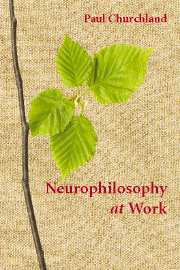Book contents
- Frontmatter
- Contents
- Preface
- Provenances
- 1 Catching Consciousness in a Recurrent Net
- 2 Functionalism at Forty: A Critical Retrospective
- 3 Toward a Cognitive Neurobiology of the Moral Virtues
- 4 Rules, Know-How, and the Future of Moral Cognition
- 5 Science, Religion, and American Educational Policy
- 6 What Happens to Reliabilism When It Is Liberated from the Propositional Attitudes?
- 7 On the Nature of Intelligence: Turing, Church, von Neumann, and the Brain
- 8 Neurosemantics: On the Mapping of Minds and the Portrayal of Worlds
- 9 Chimerical Colors: Some Phenomenological Predictions from Cognitive Neuroscience
- 10 On the Reality (and Diversity) of Objective Colors: How Color-Qualia Space Is a Map of Reflectance-Profile Space
- 11 Into the Brain: Where Philosophy Should Go from Here
- Bibliography
- Index
11 - Into the Brain: Where Philosophy Should Go from Here
Published online by Cambridge University Press: 24 July 2009
- Frontmatter
- Contents
- Preface
- Provenances
- 1 Catching Consciousness in a Recurrent Net
- 2 Functionalism at Forty: A Critical Retrospective
- 3 Toward a Cognitive Neurobiology of the Moral Virtues
- 4 Rules, Know-How, and the Future of Moral Cognition
- 5 Science, Religion, and American Educational Policy
- 6 What Happens to Reliabilism When It Is Liberated from the Propositional Attitudes?
- 7 On the Nature of Intelligence: Turing, Church, von Neumann, and the Brain
- 8 Neurosemantics: On the Mapping of Minds and the Portrayal of Worlds
- 9 Chimerical Colors: Some Phenomenological Predictions from Cognitive Neuroscience
- 10 On the Reality (and Diversity) of Objective Colors: How Color-Qualia Space Is a Map of Reflectance-Profile Space
- 11 Into the Brain: Where Philosophy Should Go from Here
- Bibliography
- Index
Summary
The physical brain, of both humans and animals, has begun to give up its secrets. Those secrets have been locked away in a bony vault, encrypted in a microscopic matrix of 100 billion neurons and 100 trillion synaptic connections, for the entire history of our philosophical musings, with no more influence on the content of those musings than the influence exerted by the equally hidden secrets of the kidney, or the secrets of the pancreas. The winding path of our philosophical theorizing has been steered by other factors entirely. Those factors have been many and various, even glorious, and they have been precious for existing at all. But they have not included even the feeblest conception of how the biological brain embodies information about the world, or of how it processes that information so as to steer its biological body through a complex physical and social environment. In these dimensions, we have been flying blind for at least three millennia.
But our blinders here have begun to be lifted, and our ignorance has begun to recede. A new generation of techniques and machines of observation has given us eyes to see into the encrypted details of neuronal activity. A new generation of scientists has given us a self-critical community of determined empirical researchers. And a new generation of theories has given us at least an opening grip on how the brain's massive but microscopic matrix might perform the breathtaking feats of real-time cognition that so compel our philosophical attention.
- Type
- Chapter
- Information
- Neurophilosophy at Work , pp. 232 - 238Publisher: Cambridge University PressPrint publication year: 2007



